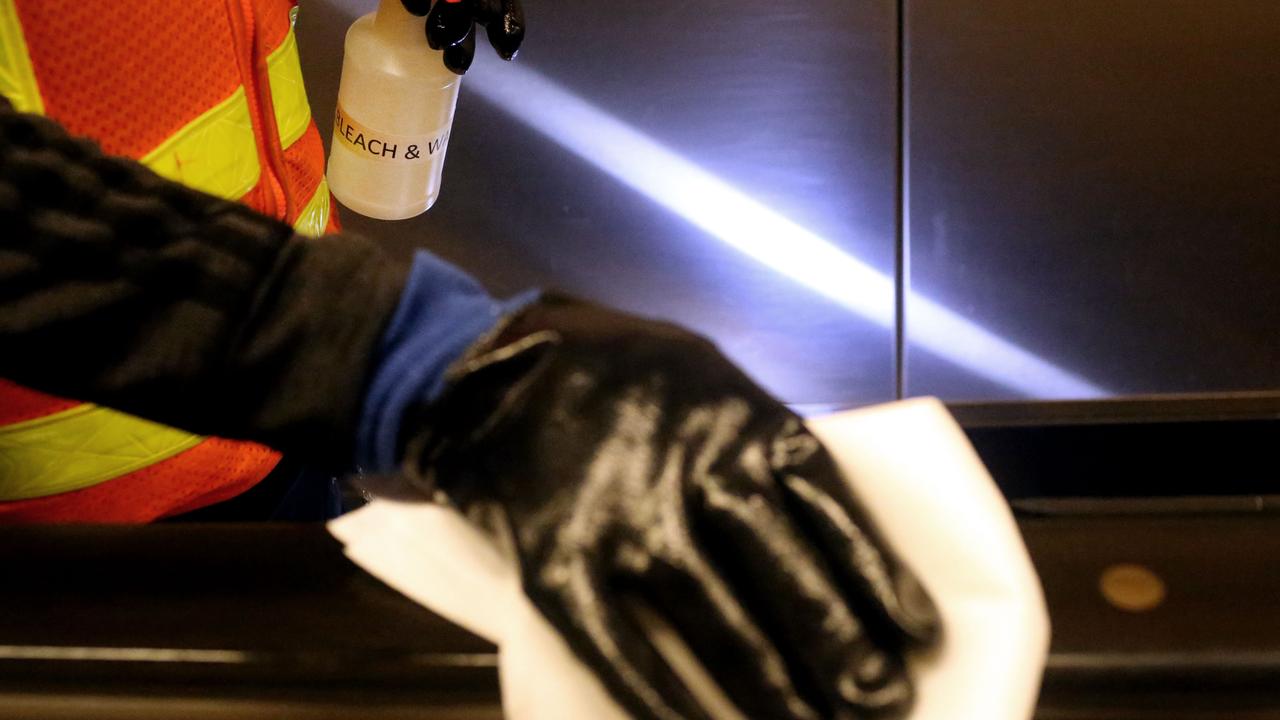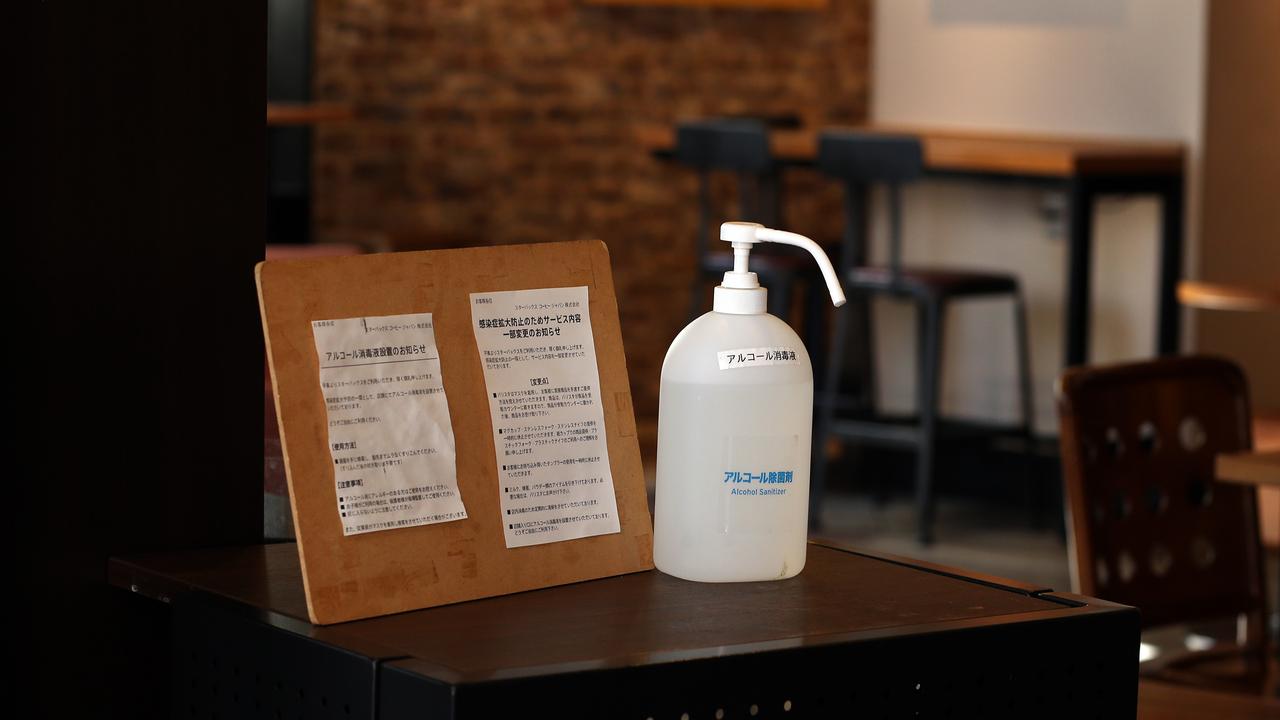Some human coronaviruses can live on surfaces for 9 days, study finds
The novel coronavirus that’s spread to dozens of countries across the world may be able to live on surfaces for up to nine days.
The novel coronavirus that’s spread to dozens of countries across the world may be able to live on surfaces, namely metal, glass or plastic, for up to nine days — if it resembles some of its other human coronavirus-causing “cousins,” that is.
In an analysis of 22 studies on other human coronaviruses — such as Severe Acute Respiratory Syndrome (SARS), Middle East Respiratory Syndrome (MERS), and endemic human coronaviruses (HCoV) — researchers found the viruses can “persist on inanimate surfaces like metal, glass or plastic for up to nine days.”
More specifically, the viruses can remain infectious on such materials between “two hours up to nine days,” according to the paper published in The Journal of Hospital Infection.
RELATED: Two Sydney doctors with the coronavirus attended conference
RELATED: Vodafone’s Sydney office evacuated as employee tested for coronavirus
RELATED: Children tested for coronavirus after exposure concerns at childcare centre
The researchers also found that temperatures of 30 or 40 degrees Celsius “reduced the duration of persistence” of some of the viruses.
What’s more, they also found that many of the coronaviruses studied could be “efficiently inactivated” by common household cleaners.
Disinfectants “with 62-71 per cent ethanol, 0.5 per cent hydrogen peroxide or 0.1 per cent sodium hypochlorite” — bleach — was able to inactive the viruses within a minute, according to the study.
“We expect a similar effect against the SARS-CoV-2,” or the novel coronavirus, researchers said.


The Centers for Disease Control and Prevention (CDC) on its website warns human coronaviruses most commonly spread through the air when an infected person coughs or sneezes, close contact with an infected person (shaking hands, for example), but also by touching an object or surface that has been exposed to the virus, then touching your mouth, nose, or eyes with dirty hands.


Transmission via inanimate objects sparked concerns that imported goods from China could pose a health risk. But an infectious disease expert previously told Fox News it’s unlikely the virus will survive the journey from China to your front door.
“The virus on materials they ordered would not survive such a trip. Outside the body, we believe this virus only survives on [an] object minutes to an hour or so, not the days it takes your goods to travel the globe,” Patricia A. Stinchfield, vice president of the National Foundation for Infectious Diseases (NFID), told Fox News at the time.
“As always after handling things, wash your hands before touching your eyes, nose or mouth.”

Madeline Farber is a Reporter for Fox News. You can follow her on Twitter @MaddieFarberUDK



